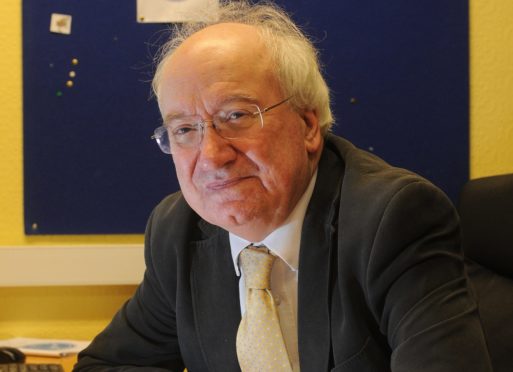A Fife charity has called for a new online GP consultation system to be pulled amid concerns it discriminates against disabled people.
Disabilities Fife has written to NHS Fife chief executive Carol Potter asking for the Online Consult scheme to be reviewed .
The group, formerly the Fife Independent Disability Network, said it feared the system was failing on accessibility and usability grounds.
The scheme, which uses online techniques to triage patients to the right advice straight away, has been introduced in a number of surgeries in recent months in an effort to reduce unnecessary appointments.
However, Charles Litster, chairman of Disabilities Fife, said users had concerns about a range of issues, ranging from people’s access to computers and ability to fill out complicated forms to text and font size and colour.
“There was no consultation about this change and the new system, in my opinion, is a flawed one,” he said.
“It is my view it does not serve the weakest in society, those that are ill, the elderly, and the disabled well.”
Mr Litster said patients at Inverkeithing Medical Group had not been informed about the new system going live on August 19, and other GPs had since followed suit.
“Some patients will be surprised when they contact surgery reception by phone and others will be shocked,” he added.
“Not everyone is on the internet; 80% of my members are not. At least 20% of the population in Dalgety Bay is elderly and of those about 60% are not computer literate.”
Inverkeithing and Dalgety Bay councillor Alice McGarry said local residents had also contacted her about the changes.
“The first person that phoned me had a 90-year-old father who was ill and there was no way he could negotiate the system,” she said.
“Even some computer-savvy people were having difficulties.
“If people want to use the system, fair enough, but people’s first point of call is the number we have known for the last 50 years.”
NHS Fife medical director Dr Christopher McKenna said the system was working successfully for a lot of people and insisted telephone appointments were always available to patients who do not have computers.
“As general practice strives to transform and redesign the way its services are prioritised and delivered, a number of practices have successfully introduced online appointment systems,” he said.
“This brings with it great benefits to patients in terms of clinical triage for those with the most urgent need as well as signposting patients to the best member of the multi-professional team to deal with their problem.
“Where a patient does not have access to the internet, a telephone option will always be offered.”










